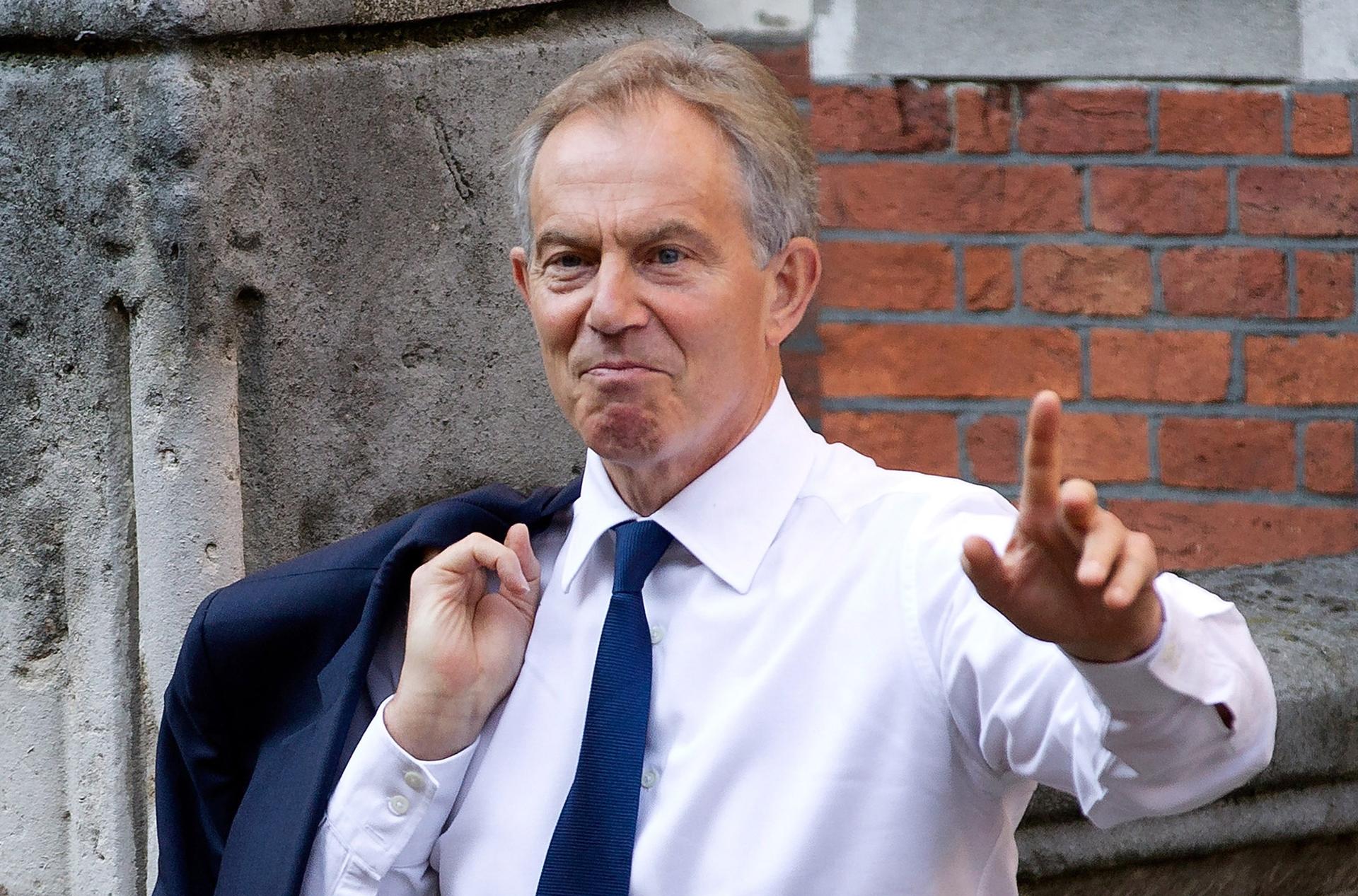Tony Blair chose to befriend — not fight — Murdoch press
Former British Prime Minister Tony Blair arrives at the Royal Courts of Justice to give evidence to the Leveson Inquiry into media ethics on May 28, 2012 in London, England.
Tony Blair has admitted he courted the media before and during his time as British prime minister, and fostered close friendships with News Corp.'s Rupert Murdoch and Rebekah Brooks.
However, he told the Leveson Inquiry into UK media ethics on Monday that people in high office were forced to solicit relationships with press barons such as Murdoch or else risk savage media attacks that are "full on, full frontal, day in, day out," Reuters wrote.
Blair said there had been a "deliberate strategy" within New Labour, the party he led, before the 1997 general election to improve relationships with a generally "Tory supporting" press.
And once in office, he had made a "strategic decision" not to tackle the "unhealthy" power of the British press, blamed for giving rise to phone hacking and other illegal activity at Murdoch's British tabloids, the Irish Times wrote.
According to Australia Network News, the inquiry heard that Blair also called Murdoch three times in the eight days leading up to the Iraq war.
However, Blair said, he also had conversations with the Observer and Telegraph broadsheets, and said it was important to fully explain issues the government was facing to the media.
While admitting he had come under "political pressure" from the Murdoch press during his 10 years in office, he repeatedly denied ever doing a "deal" with News Corporation in return for support from Murdoch's newspaper operation, according to Sky News.
"There was no deal on issues to do with the media, either with Rupert Murdoch or anyone else within the media, either express or implied, and to be fair he never sought such a thing," Blair said.
Asked if he was "too cozy" with Murdoch, as current Prime Minister David Cameron says many in the British political establishment have been, Blair — according to CNN — said:
"Coziness is not quite the way I would put it. You were in a position where you were dealing with very powerful people," he said. "If they were against you, they were all-out against you."
More from GlobalPost: Leveson Inquiry: Heckler David Lawley-Wakelin calls Tony Blair 'war criminal' (VIDEO)
According to Reuters, he continued: "With any of these big media groups, you fall out with them and you watch out, because it is literally relentless and unremitting once that happens.
“My view is that that is what creates this situation in which these media people get a power in the system that is unhealthy and which I felt, throughout my time, uncomfortable with. I took the strategic decision to manage this and not confront it but the power of it is indisputable.”
Blair — who confirmed that he is the godfather of one of Murdoch's children — insisted that his government had not acted on behalf of Murdoch's business interests.
"Actually we decided more stuff against the Murdoch interest than in favor of it," CNN quoted Blair as saying. "Pressure from him was more political than commercial."
"He didn't lobby me on media stuff," Blair said, adding: "That's not to say that we didn't know what his position was. But the bulk of our conversations were about politics."
On the topic of becoming godfather to Murdoch's daughter with Wendy Deng, Grace, he said:
"I would never have become godfather to one of his children on the basis of my relationship with him while I was in office," he said, stressing that their relations became "easier" after he stepped down in 2007.
Meanwhile, chairman of the inquiry Lord Justice Leveson, gave his clearest indication yet of what he plans to do about questionable media ethics in the UK.
The judge said he would like to see a press regulator “independent” of government, state, parliament and — unlike the present Press Complaints Commission — independent of the press as well.
More from GlobalPost: Tony Blair, Jeremy Hunt to testify at Leveson Inquiry
